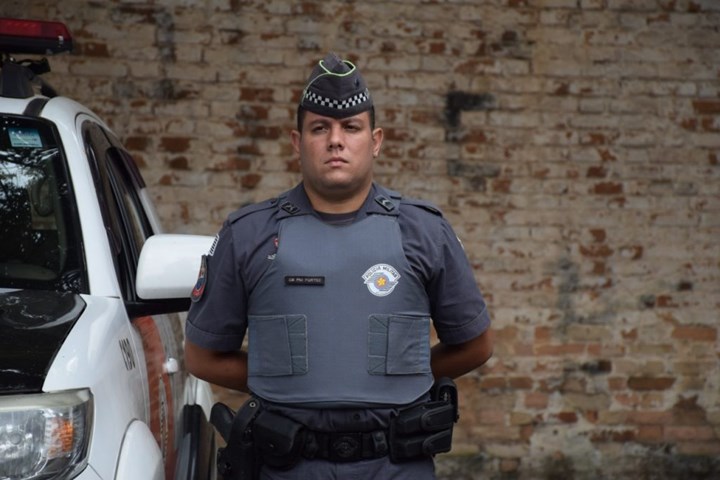Royal DSM, MKU composite armor protects Brazilian law enforcement
Level IIIA soft armor vests use Dyneema UD material for 35% weight reduction, and rigorous compliance with NIJ standards for protection against ballistic materials.

Photo Credit: Royal DSM
(Geleen, Netherlands) and armor manufacturing partner, (Uttar Pradesh, India), has combined forces to provide next-generation armor technology with Royal DSM’s Dyneema unidirectional (UD) material to support the São Paulo, Brazil police.
The São Paulo police force, which is comprised of more than 100,000 officers, is reported as the first law enforcement agency in Brazil to initiate a tender for personal protective equipment based on the latest National Institute of Justice (NIJ) .06 standards for body armor, which provide comprehensive and rigorous compliance for the performance and testing of ballistic materials. In addition to NIJ .06 certification, the tender set lightweight requirements for level IIIA soft armor vests, which are rated to protect the wearer against nearly all handgun rounds up to .44 magnum, 9-millimeter submachine gun rounds
The hybrid vest solution developed MKU uses predominantly Dyneema UD material to reach new levels of performance and protection while simultaneously enhancing user comfort and mobility. Dyneema is claimed to be the leading global brand of choice for ultra-high molecular weight polyethylene (UHMwPE) fiber, UD and fabrics, offering ballistic solutions for personal and vehicle armor that combine maximum strength with minimum weight.
According to Royal DSM, in soft armor applications, Dyneema offers up to 35% weight reduction when compared to competitive materials, while still protecting against both legacy and emerging threats, making it an ideal material for elite military and law enforcement personnel.
“Together, with Dyneema material, MKU was able to deliver a level IIIA soft armor vest that increases wearer ergonomics while reducing weight by more than 20% when compared to the incumbent aramid material,” says Marcelo van de Kamp, global business director, Personal Protection of DSM. “We’re proud to provide a solution that meets the strict requirements of the Sao Paulo police to ensure the brave men and women of their department are protected with Dyneema.”
In addition to the lightweight armor requirement, the vests were also thoroughly tested to ensure performance with NIJ ballistic reports, NIJ certification and in-house ballistic testing both during the tender process and after the vests were received.
“MKU is committed to providing the latest and most cutting-edge solutions to the São Paulo police,” says Neeraj Gupta, managing director of MKU. “These vests not only offer the best protection, they are extremely light weight and comfortable to wear.”
In line with DSM’s commitment to protect people and the environment they live in, the company’s bio-based HMPE fiber was introduced in 2020. Bio-based Dyneema reportedly boasts the same performance as conventional Dyneema with a carbon footprint that is 90% lower than generic HMPE. In the future, DSM and MKU’S continued partnership in supporting the São Paulo police will not only provide innovative, lightweight solutions for armor technology in Brazil, but also environmentally sustainable alternatives that contribute to a circular economy.
Related Content
-
Low-cost, efficient CFRP anisogrid lattice structures
CIRA uses patented parallel winding, dry fiber, silicone tooling and resin infusion to cut labor for lightweight, heavily loaded space applications.
-
Cutting 100 pounds, certification time for the X-59 nose cone
Swift Engineering used HyperX software to remove 100 pounds from 38-foot graphite/epoxy cored nose cone for X-59 supersonic aircraft.
-
Plant tour: Airbus, Illescas, Spain
Airbus’ Illescas facility, featuring highly automated composites processes for the A350 lower wing cover and one-piece Section 19 fuselage barrels, works toward production ramp-ups and next-generation aircraft.






